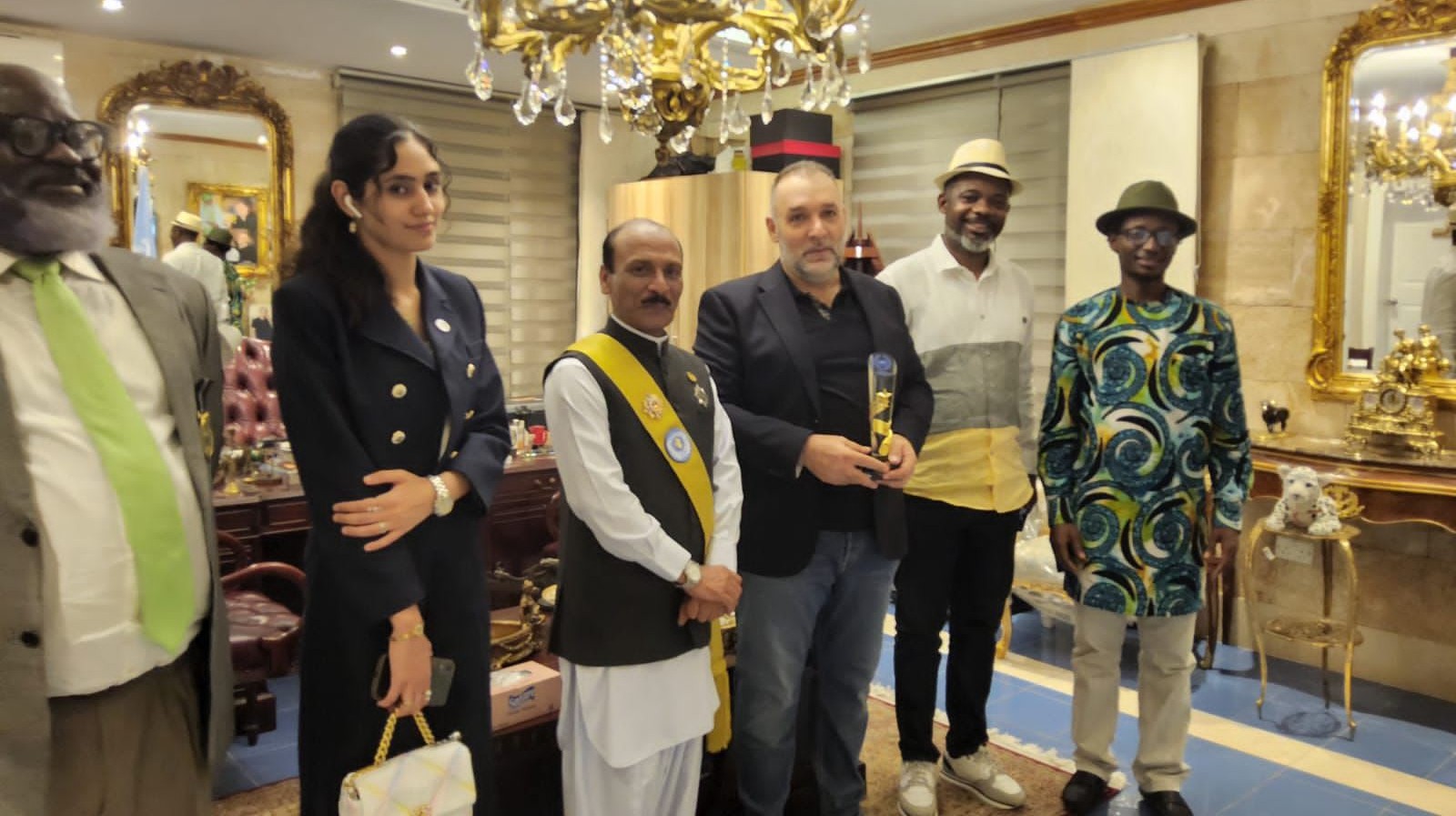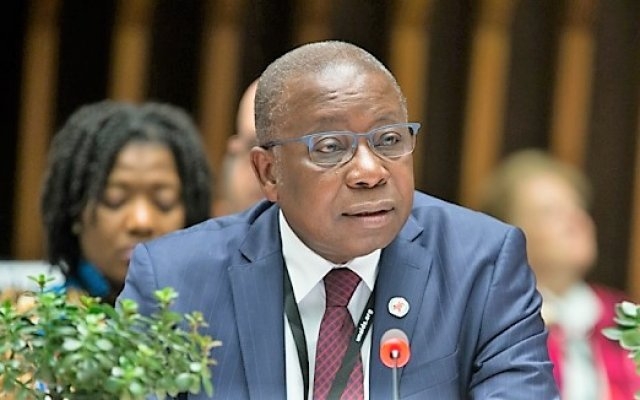Aveyime rice factory abandoned over lack of funds

According to the Minister of Food and Agriculture, Dr. Owusu Afriyie-Akoto, since 2015, Ghana has been spending over a billion dollars to import rice into the country.
However, industry players say this figure could be an underestimation of the true picture on the ground.
The Deputy Minister for the sector, Robert Ahomka Lindsay speaking at a Ghana-Vietnam trade and investment promotion forum held in Accra last year, said Ghana imported rice worth 1.1 billion dollars in 2017 alone; adding that rice importation into the country takes 82% of all imports into the country.
Interestingly, although the country spends such a huge amount on rice importation into the country, government continues to pay lip service to the local rice industry which analysts say has great potential.
Peasant and commercial rice farmers as well as investors in the country are unhappy with how successive governments have failed the sector.
Quality Grain Company, now Prarie Volta Limited, popularly called the Aveyime rice farm has been left dormant.
It is no secret however, that from the farm to the dining tables, Rice is a staple food consumed across the world.
According to statistics, the total global consumption of milled rice amounted to approximately 477.77 million metric tons in 2016/2017 alone.
Countries such as Thailand, Vietnam, India, USA and Brazil, have become wealthy and food sufficient through the commercial production of rice.
But Ghana’s story is different, as the sector is virtually dead. One of such typical examples is the Aveyime Rice Farm.
Successive governments have for years attempted to bridge the widening gap in rice imports by investing in commercial rice production, but all these efforts did not see the light of day.
In an attempt to sustain the dream of commercialized rice production in the country, the government of Ghana on 16th May 2007, signed a Memorandum of Understanding (MOU) with an American based Investor, Prairie Texas Incorporated (PTI) to provide a framework for investment, management and governance of rice production through the defunct Quality Grains Company Limited under a new name, Prairie Volta Limited PVL.
According to the investment agreement, PTI owned an initial 70 percent shares valued at 2.5 million Dollars ($2.5,000,000), while the government of Ghana through the Ministry of Food and Agriculture MoFA, owned 30 percent shares also valued at One million dollars ($1,000,000) which was donated through the assets of the defunct Quality Grains project.
In addition to its equity contribution, PTI was further obliged per the agreement to secure from external sources all financing and capital needed for development works and services of the project estimated at Three Million US Dollars (US $ 3,000,000) at the time.
Moving forward, Prairie Texas Incorporated PTI invested one million dollars ($1,000,000) cash as its initial equity contribution. However, in a bid to raise some more capital for the project, PTI sold 30 percent of its 70 percent shares to Development Finance and Holdings Limited (DFHL), a subsidiary of the Ghana Commercial Bank.
As a result of the transaction, a capital of $1,500,000 was realized from the sale of the 30% shares bringing the total equity contribution of PTI to 2.5 million dollars.
This transaction, however, changed the shareholding structure of the company with PTI holding 40% shares, DFHL of GCB also holding 30% shares and the government of Ghana through Ministry of Food and Agriculture also holding 30% shares.
With this arrangement, the farm was opened to business in 2009 to 2015 when operations came to a halt.
According to the foreign investors, this was as a result of several factors which had to do with finance.
According to the Finance Manager of Prarie Volta, Richard Amoasi, one of the factors had to do with “government pegging the value of the asset at 8.2 million dollars when it was purchased by Prarie Volta. Meanwhile, these assets have been sitting down for ten years without usage.”
“The said amount was sitting on our balance sheet as a debt which was a major challenge which prevented the investors from securing any funds elsewhere in the world including the World Bank which was ready to provide us with some funding. One other challenge that worked against us had to do with land compensation. There were times we go to the farm to work and the chiefs prevented us because they have not been compensated.”
“The third challenge that also worked against us had to do with the interest rate at the time. The interest rate was so so high that it was not feasible to run a rice farm in Ghana with an interest rate of 37%. The fourth challenge had to do with the equipment as the equipment we inherited were old and outmoded and most of which had lied idle for long and looked rusty,” he lamented.
According to a board member representing PTI, Eric Addo Mensah, one key challenge had to do with the equipment as the company had to spend huge sums of money to make them usable.
“When we took over, the equipment had been lying down for over ten years so a number of them were faulty and no longer in production,” he said.
According to Deputy MD of GCB Bank, Socrates Affram, who also doubles as a board member of PVL, he mentioned multiplicity of challenges as factors that worked against the company which largely had to do with equipment and finance.
But the Legal Director at the Ministry of Food and Agriculture, Seth Dumoga who was also a board member of the defunct PVL Company, the collapse of the project was because the investor, PTI failed to bring in the needed capital to run the project as expected.
“Prarie Texas had the management and they had to bring in the needed working capital but they run out of working capital to keep the project running and this has brought the project to a halt. The foreign partners were supposed to bring in three million dollars as working capital and they failed to bring in that money. So the company suffered from lack of working capital.”
However, Vandyke Mensah, the American based Investor on his part accused Mr Dumoga and the Ministry of Food and Agriculture of lacking the understanding of the project with regards to financial issues; a situation he said was one of the problems the project suffered.
“I am surprised at Mr Dumoga’s claims as he has no clue what he was talking about. My partner and I spent about 1.5 million dollars on feasibility studies which include paying for agronomists, surveyors among others. The sad part of the whole transaction is that MOFA officials don’t seem to understand finance. They don’t realise that when you represent your asset, it affects your balance sheet. That singular act by MOFA affected us and made it difficult to access external source of funding.”
“Apart from that, the equipment we inherited were all obsolete and outmoded. The dryer, for instance, was not meant for rice and rather it was a corn dryer. All other equipment had not been put to use for over ten years.”
While the project is struggling to find its feet, GCB Bank has gone to court to seek an order to sell part of the assets of the company to defray a 1.5 million dollars debt the company owed it.
Meanwhile, the town folks are expecting government to revamp the project to enable them have access to employment as the project has the capacity of employing about five hundred direct workers and about two thousand indirect workers.
Source: citinewsroom.com





